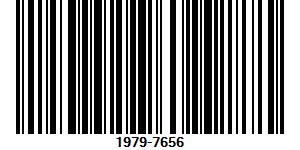RANCANGAN BANGUN PROTOTYPE ALAT PENGERING KERUPUK OTOMATIS BERBASIS ARDUINO UNO
DOI:
https://doi.org/10.30989/teknomatika.v13i1.1106Keywords:
prototype cracker drying, Arduino UnoAbstract
Along with the increasing times and the more busyness of humans, drying problems often become a very troublesome problem because it is still conventional by using direct sunlight. For example, when the crackers are drying, rain falls when the workers are doing other work. Of course the workers will feel anxious if the crackers that have been dried in the sun are wet with rain and have to be redried, so this research proposes to help the workers drying the crackers. This research will discuss the workings of the rain sensor, LDR (Light Dependent Resistor) sensor and heat / temperature sensor for drying crackers with the Arduino Uno system. This study aims to make a prototype cracker drying device that can automatically open or close the protective tarp for the cracker drying rack when it rains or the sun's light intensity has darkened using the Arduino Uno microcontroller. The design of this application uses the method prototype and uses the DELPHI programming language by utilizing the Arduino IDE and using the Microsoft Access database. The results of this study were obtained in the form of an automatic cracker drying tool application that can detect weather conditions during drying well. This tool will help the drying process from the beginning of drying until the crackers are completely dry and ready to be marketed.
References
[2] A. D. Darusman, M. Dahlan, and F. Shoufika Hilyana, “Rancang Bangun Prototype Alat Penjemur Pakaian Otomatis Berbasis Arduino Uno,” Jurnal SIMETRIS, vol. 9, no. 1, 2018.
[3] S. Fuada, “Perancangan Kendali Pada Alat Pengering Kerupuk Berbasis IC Digital,” Jurnal Teknik Elektro ITP, vol. 6, no. 2, pp. 134–139, Jul. 2017, doi: 10.21063/JTE.2017.3133618.
[4] E. Argo, K. Program, S. Teknik, P. Jurusan, T. Pertanian, and F. Pertanian, “Desain Sistem Pengering Kerupuk Kemplang Dengan Uap Super Panas Berbahan Bakar Biomasa,” 2015.
[5] Novarini and Sukardi, “Kinerja Pengering Kerupuk Dengan Sistem Konveksi Paksa,” Jurnal Inovator, vol. 1, no. 1, pp. 6–9, 2018.
[6] W. Setyaningsih, “Metode Penelitian,” https://tphp.ugm.ac.id/2017/04/28/drwidiastuti-setyaningsih/, Apr. 10, 2020.
[7] Arduino Official, “Using An LDR Sensor With Arduino,” 2018. https://create.arduino.cc/projecthub/tarantula3/using-an-ldr-sensor-with-arduino-807b1c (accessed Apr. 10, 2020).
[8] Arduino Official, “How to Use Rain Sensor in Arduino,” 2019. https://create.arduino.cc/projecthub/MisterBotBreak/how-to-use-a-rain-sensor-bcecd9 (accessed Apr. 10, 2020).
[9] U. Hanifah and R. Alit, “Penggunaan Metode Black Box Pada Pengujian Sistem Informasi Surat Keluar Masuk”.
[10] Arduino Official, “How To Use A Rellay With Arduino,” 2017. https://create.arduino.cc/projecthub/muhammed-shameel-k-v/how-to-use-a-relay-with-arduino-e04e3c (accessed Apr. 10, 2023).










